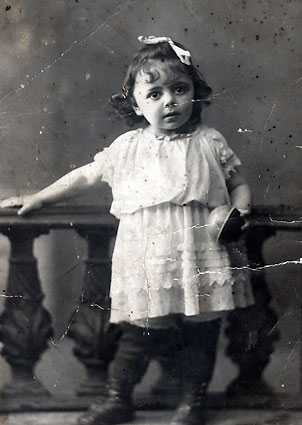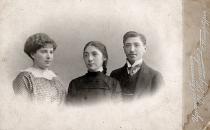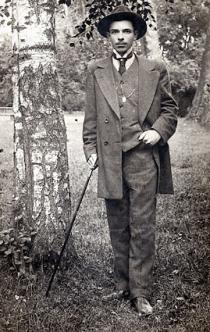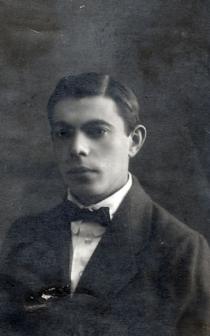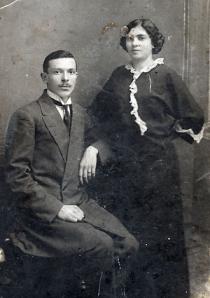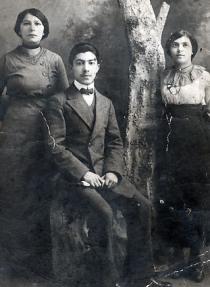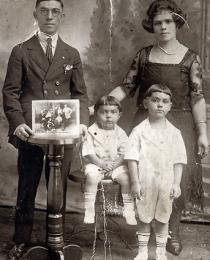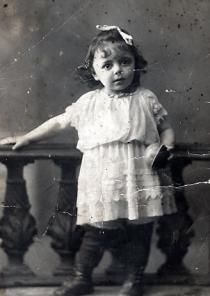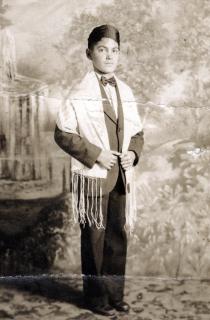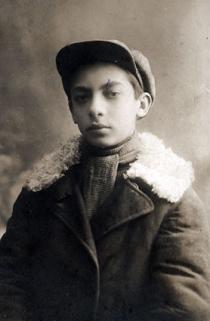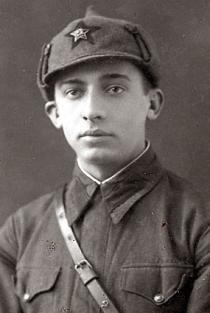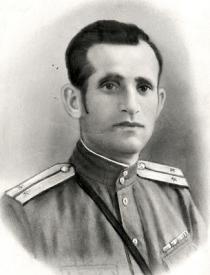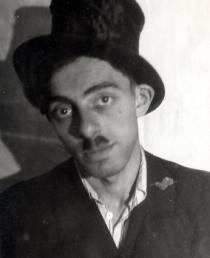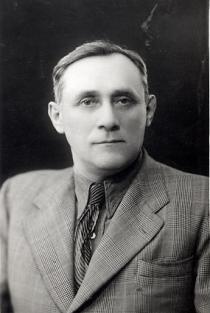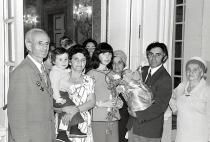This is me, Lyudmila Kreslova, at the age of two in 1923 in Vitebsk.
My name according to my passport is Lyudmila Anatolievna Kreslova. My Jewish name, given to me by my parents, is Leya.
My maiden name is Khotianova. I was born in 1921 in Vitebsk. Our family lived in Vitebsk. It was a small but very beautiful and ancient town on the bank of the Western Dvina River. Houses were two-storey and three-storey, mostly built of stone.
My first recollection refers to the time when I was three years old. I had a sister Peisia, born in 1923. I was two, when she was born. I was small and I wanted to be held by my mother, but she paid all her attention to my younger sister. It offended me very much.
My brother Boris was born in 1927 and Vladimir in 1930. I was the eldest daughter and my mother's helper. I took care of all the children.
Mother always sent me to do the shopping. That was the NEP period. The authorities allowed private trade and small business. It was possible to buy all necessary things if one had money, but we had none.
However, the sales assistants at the stores kept debt books to write in the name and the amount of the debt. I was small, only five years old. I came to a store and named what we needed. The shop assistant gave me food products on credit.
My parents paid off the debt later. In 1926 there were interruptions in bread supplies. I was five years old, but my mother sent me to get bread. So I had to stand in line for bread during the night and half of the day.
I went to the market-place with my mother. There were always live geese, hens, ducks, roosters and other animals. Mother bought live hens, took them to the shochet to be slaughtered, and later plucked them and made pillows out of down and feathers. Mother sewed well, she sewed blankets, pillows and also baked very tasty bread.
Father loved me. He sat me onto his lap and told me about his military service. He told me that in the Tsar's Army they had bad uniforms, bad food, only one rifle per three soldiers and it was hard to conduct the war. It was during the first war with the Germans, in 1916.
